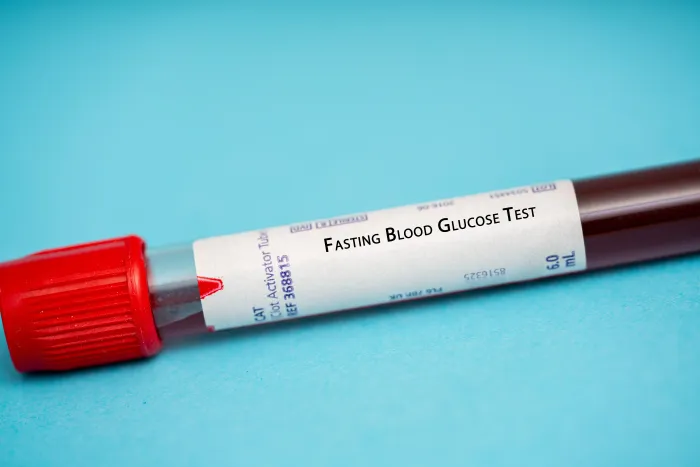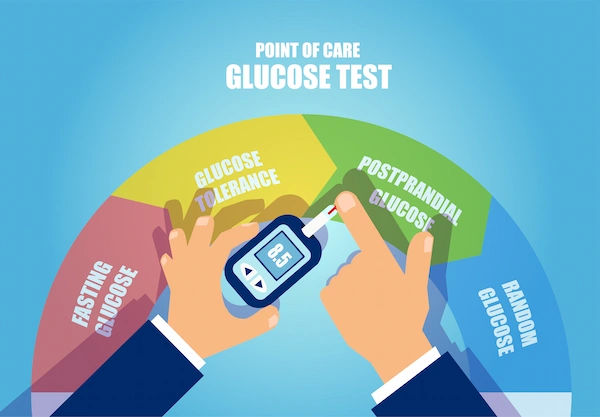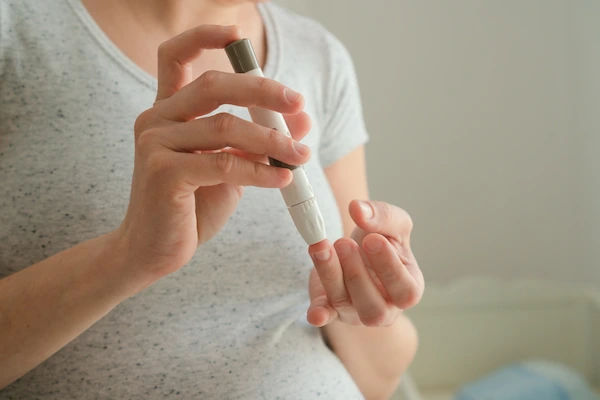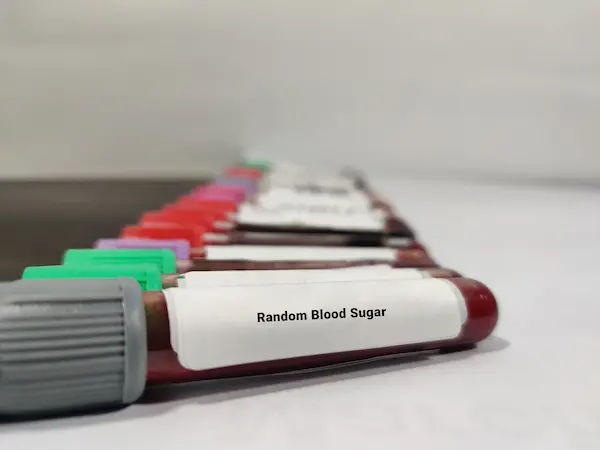Should Kids Fast Before Blood Tests? Glucose Fasting and PP Explained for Indian Parents
Confused about blood tests for your child? This guide for Indian parents explains when fasting is required for glucose tests and PP tests, and how to prepare your child for the blood draw.

Written by Dr. Shaik Abdul Kalam
Reviewed by Dr. Rohinipriyanka Pondugula MBBS
Last updated on 7th Aug, 2025

As parents in India, we often have many questions when our children need a blood test. One of the most common concerns is about fasting blood test for children. Should they really go without food? How long do they need to fast? This can feel especially tricky with young children who get hungry quickly or have specific routines.
This article aims to clear up common questions about fasting requirements for children’s glucose tests, specifically the glucose fasting test kids might need, and the post-prandial (PP) glucose test. We will explain why these tests are done, what to expect, and how to prepare your child, making the process less worrying for you.
What is a Glucose Fasting Test?
A glucose fasting test measures the amount of sugar (glucose) in your child's blood after they haven't eaten or drunk anything (except water) for a certain period. This period is called 'fasting'.
- Why is it done? This test helps doctors check how your child's body manages blood sugar levels when they haven't had food for a while. It's a key test to:
Screen for diabetes or pre-diabetes: To see if blood sugar levels are higher than they should be. - Check for low blood sugar (hypoglycaemia): To see if levels drop too low.
- Monitor existing conditions: If your child already has diabetes or another condition that affects blood sugar.
Book Fasting Blood Sugar (FBS) Test
What is a Post-Prandial (PP) Glucose Test?
The Post-Prandial (PP) glucose test, sometimes called a 'post-meal' glucose test, measures your child's blood sugar level at a specific time after they have eaten a meal. Usually, this is two hours after they finish eating.
Why is it done? This test helps doctors understand how your child's body processes sugar after a meal. It shows:
How the body reacts to food: It gives an idea of how well insulin (a hormone that helps sugar get into cells) is working to keep blood sugar stable after eating.
To diagnose or monitor diabetes: It provides additional information to the fasting test, giving a fuller picture of blood sugar control.
Book Post-Prandial Blood Sugar (PPBS) Test
Why Fasting for Kids Can Be Tricky for Indian Parents
Fasting before a blood test can be tough for kids, especially in Indian families where regular meals and snacks are part of daily care. Skipping food, even briefly, often feels unnatural and worrying for parents.
Here are some common concerns for Indian parents:
- Emotional distress for the child: A hungry child can become irritable, cry, or feel confused, making parents feel guilty.
- Cultural eating habits: Many families have specific routines for morning tea, breakfast, or snacks that are hard to break.
- Fear of weakness: Parents might worry their child will become weak or unwell if they don't eat.
Understanding instructions: Sometimes, the instructions about 'fasting' can be unclear, leading to confusion about what is allowed (e.g., water, plain tea).
It's important to remember that doctors recommend fasting for specific tests to get accurate results. These instructions are for your child's health and help the doctor make the right diagnosis.
Fasting Before Blood Tests in Children
Fasting helps ensure accurate results for certain blood tests, especially those measuring glucose or lipids. However, the need and duration of fasting vary by age and test type.
- Infants (under 1 year): Fasting for infants is usually not recommended or kept very short, often only 3-4 hours, or just before their next scheduled feeding. Always follow your paediatrician's specific advice.
- Toddlers (1-3 years): A fasting period of 6-8 hours is typically needed. This usually means no food after dinner, and then the test is done first thing in the morning.
- Older Children (4 years and above): An 8-12 hour fasting period is common, similar to adults. Again, this means no food or sugary drinks overnight, with the test scheduled for early morning.
Practical Tips for Parents
- Water is usually allowed. Avoid milk, juice, or flavoured drinks.
- Confirm with your doctor whether regular medications should be taken during fasting.
- Avoid chewing gum or sweets, as they can affect test results.
- Schedule the test early in the morning to minimise discomfort.
- Always get clear, specific instructions from your child's doctor or the lab before the test. If you are unsure, it is better to ask.
Preparing Your Child for the Test
Preparing your child can make the fasting and the blood draw itself much easier.
- Explain Simply: For older children, explain why the test is happening in simple terms. For example, "The doctor needs to check your sugar to make sure your body is strong and healthy."
- Schedule Smart: Try to schedule the test for early morning. This way, your child can fast overnight while sleeping, and you can get the test done as soon as they wake up, followed immediately by breakfast.
- Distract and Comfort: Bring a favourite toy, book, or tablet to distract them during the blood draw. Offer comfort and reassurance.
- Plan a Reward: Promise a special breakfast or a small treat after the test to give them something to look forward to.
- Stay Calm: Children often pick up on their parents' anxiety. Staying calm and positive can help your child feel more at ease.
Understanding the Results
Once the test is done, your doctor will explain the results.
Here are some general guidelines for normal blood sugar levels in children (measured in milligrams per decilitre, mg/dL).
Normal Fasting Glucose Levels:
- Infants & Toddlers (0-3 years): Generally between 60-110 mg/dL.
- Children (3-12 years): Generally between 70-140 mg/dL.
- Teenagers (13-18 years): Generally between 70-140 mg/dL.
- Normal Post-Prandial (2 hours after meal) Glucose Levels:
- For most healthy children, levels should be less than 140 mg/dL.
- High Glucose Levels: Higher-than-normal fasting or PP glucose levels can suggest pre-diabetes or diabetes. Further tests might be needed to confirm a diagnosis.
- Low Glucose Levels: Lower-than-normal levels (typically below 70 mg/dL) can indicate hypoglycaemia, which also needs investigation.
- Note: Keep in mind that test results can vary slightly depending on the lab and your child’s individual health profile. That’s why it’s important to review all results with your child’s doctor. They will consider your child's symptoms, medical history, and other factors to make a complete assessment.
Where to Get Reliable Glucose Testing in India?
When it comes to monitoring your child’s health, finding a reliable and convenient place for glucose testing is essential. Apollo 24|7 offers trusted and easy-to-access glucose testing services designed with children’s needs in mind.
Apollo 24|7 provides a variety of tests to help track your child’s blood sugar levels, including:
- Fasting Blood Sugar (FBS) Test: Measures blood sugar levels after fasting, providing a baseline reading.
Book Fasting Blood Sugar (FBS) Test
- Post-Prandial Blood Sugar (PPBS) Test: Measures blood sugar levels after a meal, helpful for monitoring how the body processes glucose.
Book Post-Prandial Blood Sugar (PPBS) Test
- HbA1c Test: Gives an average blood sugar level over the past 2-3 months and usually does not require fasting.
- Besides individual tests, Apollo 24|7 offers comprehensive health check-up packages for children that include glucose testing as part of broader health monitoring. Parents can explore options on the Apollo 24|7 website under categories like "Diabetes" or "Full Body Checkup."
Conclusion
Fasting blood tests can be challenging for children, but they play an important role in checking for early signs of glucose-related health issues. A glucose fasting test kids is often recommended when there are concerns about blood sugar levels or symptoms like fatigue, weight changes, or excessive thirst. If your doctor suggests a fasting blood test for children, following the fasting guidelines helps ensure accurate results. With reliable services like Apollo 24|7, parents can access convenient at-home testing and quick results, making it easier to care for your child’s health with confidence.
Get Your Health Assessed Here


.webp)


